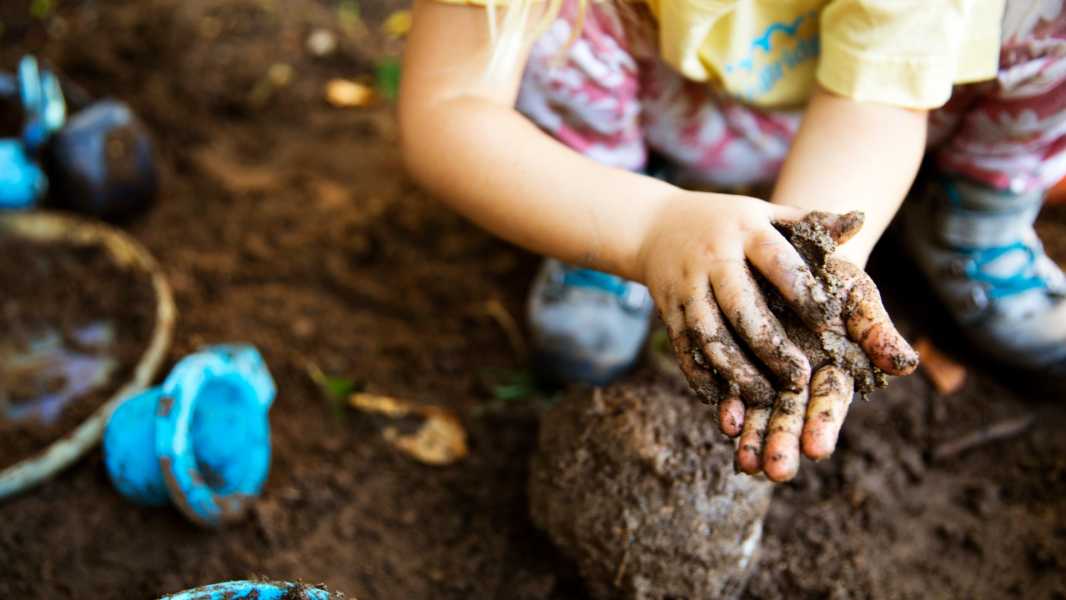
Exposure to microbes in the natural environment, including soil, can boost children's immunity. (Image credit: Cavan Images via Getty Images)
As a child, you may have been told that playing outside in the dirt is good for your immune system. But is there any evidence to support this claim?
In short, yes — a number of studies suggest that early exposure to dirt may reduce the likelihood of allergies and autoimmune diseases in children. In other words, it may protect against conditions in which the immune system reacts abnormally to allergens or the body’s own tissues.
As a child's immune system develops in the first years of life, the army of defense cells must learn to distinguish between self-cells and foreign substances that may be harmless or cause disease, such as bacteria and viruses. It must learn to recognize pathogens so it can respond effectively to them.
It turns out that the molecular signals that trigger the expansion of this regulatory arm of the immune system come largely from microbes in the gut, Graham Rook, an emeritus professor of medical microbiology at University College London, told Live Science. This collection of microbes is called the “gut microbiome,” and it plays a key role in our health. For example, some of these microbes help synthesize vitamins essential for life and aid in the digestion of food.
The first year of life is especially important for establishing the microbiome. Babies acquire bacteria as they pass through the birth canal during vaginal births and from breast milk if they are breastfed. As they grow, children are continually exposed to microbes from a variety of sources.
A theory known as the “old friends hypothesis” suggests that the more microbial diversity we are exposed to in early childhood, the more diverse our microbiomes will be and, therefore, the better our immune system will be at distinguishing “friends” from “foes.” The term “old friends” refers to beneficial, or “commensal,” microbes that live on and in the body without causing harm to human health.
This theory, proposed by Rook in 2003, is similar to the more well-known hygiene hypothesis, which posits that a lack of early exposure to microbes makes people more susceptible to immune diseases. For example, numerous studies have shown a link between living on a farm or in a home with pets and a lower likelihood of developing allergies in children compared to children raised in urban environments or without pets.
However, the old friends hypothesis emphasizes the importance of early-life exposure to commensal microbes rather than infectious pathogens. This idea is supported by research: several studies in Europe show that early exposure to microbes does not protect against the development of allergies. Another criticism of the hygiene hypothesis is that it underestimates the importance of good hygiene in preventing disease, arguing that we have become “too clean,” as Rook and colleagues pointed out in a 2016 review.
Sourse: www.livescience.com





